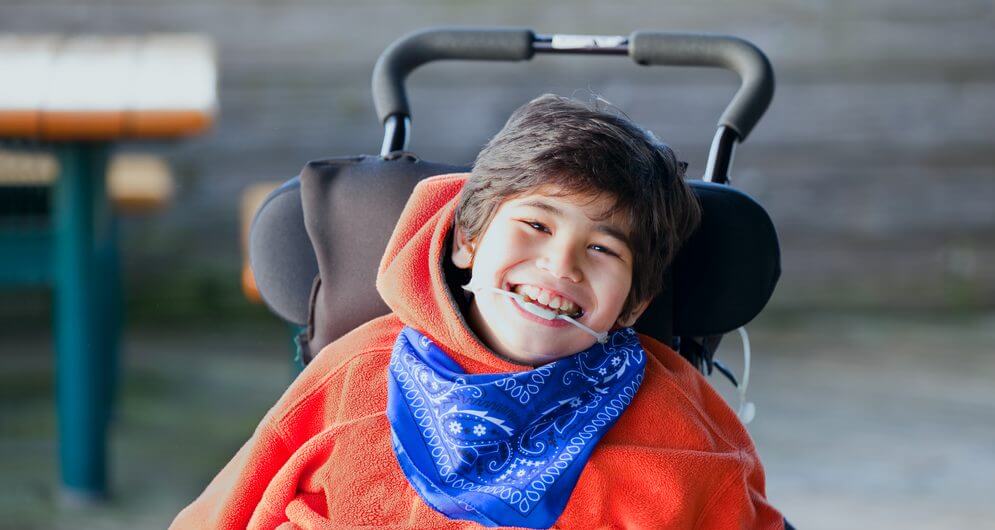Over $600 million in
verdicts & settlements
for our clients.
$185,000,000
Verdict
ERNST & YOUNG
Accouting Malpractice
$150,000,000
Verdict
EXXON MOBIL
Gas Leak
$25,000,000
Verdict
BELL ATLANTIC
Business Fraud
$11,800,000
Verdict
PERSONAL INJURY

The Centers for Disease Control and Prevention estimates one in every 323 children in the U.S. will have cerebral palsy. When you consider that each year about 4 million babies are born, the magnitude of that number becomes clear – around 12,384 of those infants will have this life-changing disorder.
The condition is different for everyone, but it could potentially affect the child’s movement, speech, vision and hearing. If you are expecting a baby or have a child recently diagnosed with cerebral palsy, it’s time to learn more about the disorder, how it occurs and what recourse you might have in court.
What is Cerebral Palsy (CP)?
Cerebral palsy is defined as a disorder of movement, muscle tone and posture. The word cerebral refers to brain and palsy to an affliction of the muscles. The disability is characterized by exaggerated reflexes that make muscles floppy or overly rigid. CP is a life-long condition that can limit mobility, make it difficult to swallow and even affect eye movement – any function that requires muscle control in a potential target.
The exact effect varies from person to person based on the extent of the damage to the brain. Some individuals present with just limited mobility while others have impaired intellectual development. Cerebral palsy may be accompanied by epilepsy, blindness or deafness, as well.
What Causes Cerebral Palsy?
Cerebral palsy is the direct result of a disruption in brain development or some other abnormality. The cause is difficult to pinpoint because most of the injuries occur prior to birth. Some common issues that lead to CP include:
- Maternal infections – What happens to the mother also happens to the baby, so infection is a primary concern during pregnancy.
- Fetal stroke – Stroke occurs due to a disruption in blood supply to the fetuses developing brain
- Lack of oxygen – Asphyxia or oxygen deprivation can occur during labor
Cerebral palsy may develop after a baby is born, as well. Infection that causes inflammation in or around the brain, for example, can interfere with its development. Traumatic brain injury is another possibility – a baby thrown out of a defective car seat may suffer a lifelong injury to the brain.
What are the Different Types of Cerebral Palsy?
The medical industry classifies the various types of cerebral palsy based on how they affect movement. This disorder causes one or more the following symptoms:
- Stiff or spastic muscles
- Uncontrolled movements
- Poor balance and coordination
Using this classification model, there are four specific forms of cerebral palsy.
Spastic CP – This is the most common form, affecting almost 80 percent of individuals with cerebral palsy. It involves muscles that stiffen up making movement jerky and awkward. There are three different types of spastic CP:
- In one form, called spastic diplegia, the stiffness is mostly in the legs.
- With spastic hemiplegic, the disorder focuses on one side of the body.
- The most severe form is spastic quadriplegia where all four limbs are affected.
Dyskinetic CP – People suffering from this form of CP have trouble controlling movement throughout their body. They may be slow and writhing or fast and jerky. The disability makes it difficult to swallow, talk or suck. The effect of the condition can change from day to day, as well. One day may be fraught with rapid, jerky movements while the next day the muscles are slow to respond.
Ataxic CP – Ataxic CP attacks balance and coordination. Walking is unsteady and they may have trouble controlling their limbs well enough to perform common tasks like writing.
Mixed CP – As the name suggests, this version of the disorder consists of mixed problems such as spastic-dyskinetic symptoms.
What Medical Errors Can Cause Cerebral Palsy?
Cerebral palsy is often associated with an injury of some kind, either at birth or during early childhood. It just takes one poor decision or a second of indecision to cause a lifetime brain injury. Common medical errors that may lead to CP include:
- Failure to diagnose and treat infant seizures
- Delaying cesarean delivery when the fetus is in distress
- Failure to recognize an infant brain hemorrhage
- Improper or excessive use of a vacuum extractor
- Missed prolapsed umbilical cord
- Improper use of forceps during delivery
- Failure to treat infant jaundice
- Delayed delivery
- Misdiagnosed pregnancy-induced hypertension known as preeclampsia
Post-delivery incidents can also be at fault such as:
- Healthcare-acquired infections are becoming more common these days. Infants are especially venerable to this type of medical injury. Any brain infection can lead to inflammation that will cause permanent damage.
- Traumatic brain injury due to an auto accident, physical abuse or neglect
Although nothing can give your child back what he or she has lost, seeking legal recourse will make those responsible for the indecision, mistake or neglect accountable for their actions.
CP legal cases are challenging, especially if the brain injury occurs prior to birth, but critical because they hold medical facilities and practitioners responsible for the care choices they make and provide monetary compensation to help improve the quality of life for those harmed.
Who Can You Trust with Your Case?
Have you or a loved one been injured due to negligence? We want to help. Don’t hesitate to contact us if you believe you have a case; time is an important factor. Interested in learning more? Get in touch with us so we can better evaluate and serve your needs in getting the justice your loved one deserves. You may very well be entitled to compensation.

Call For a Free Consultation









